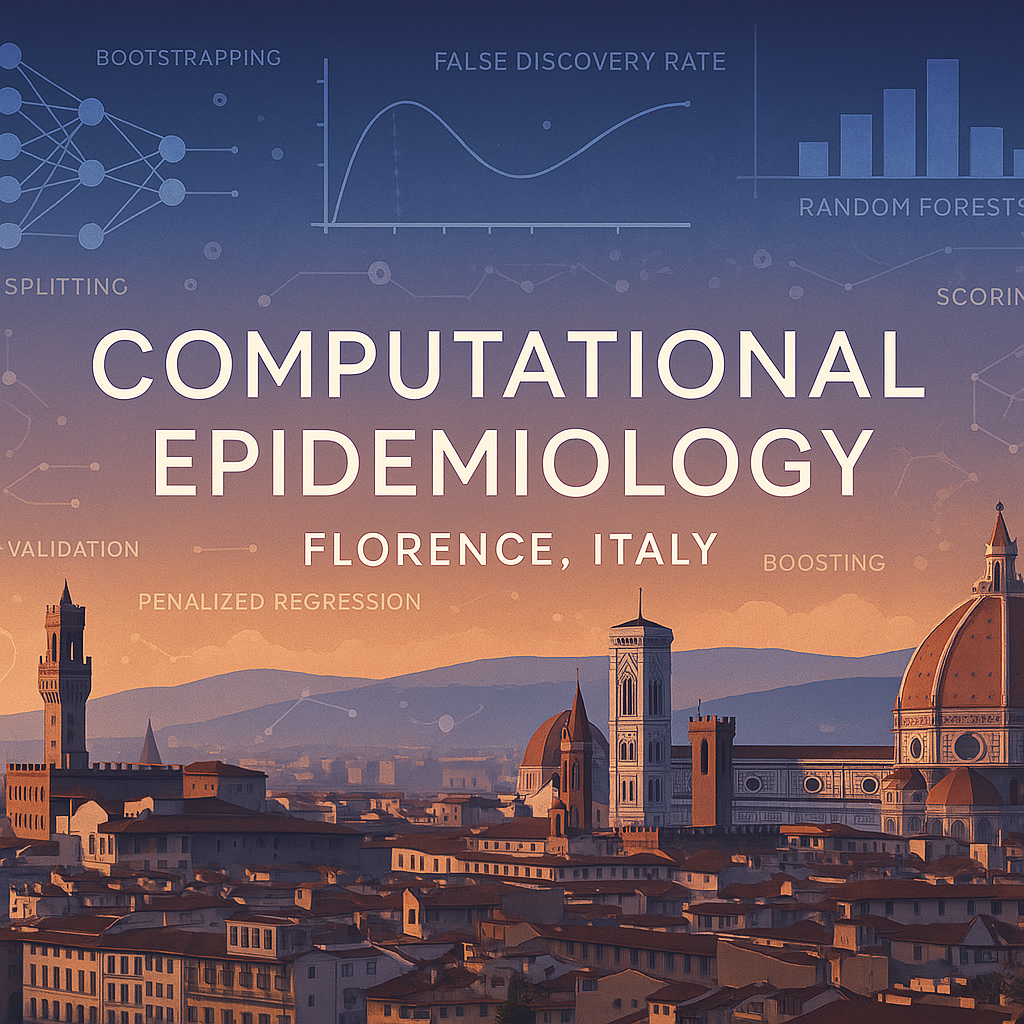Computational Epidemiology
This is the website for the course in Computational Epidemiology held as part of the European Educational Programme in Epidemiology.

Modern epidemiological studies employ designs and collect data of a complexity that requires advanced, flexible computational methods.
This course introduces and explains general computational methods suitable for analyzing large-scale complex epidemiological data.
We cover generic techniques and concepts from machine learning and the course enables the participants to evaluate when these data-driven and computational approaches apply to a given epidemiological data analysis problem, discuss potential pitfalls and understand the assumptions underlying these techniques.
The course offers a thorough overview of machine learning approaches applicable to epidemiological data analysis and equips the participants with new practical skills to expand their data analysis toolbox.
Topics cover data-splitting, bootstrapping, cross-validation, false discovery rates, penalized regression, random forests, boosting, neural networks, deep learning, scoring rules, accuracy metrics and how these methods play together with flexible data-driven parametric and non-parametric modelling approaches for high-dimensional data as well as causal inference.
Case studies will be from public health.
Learning objectives
The course will contain equal parts theory and applications and consists of four full days of teaching and computer lab exercises. It is the intention that the participants will obtain a thorough understanding of the statistical methods presented and are able to apply them in practice after having followed the course.
While no previous knowledge of machine learning methods or R is expected, having basic experience using R for epidemiological analysis is an advantage.
This course is aimed at health researchers who need an overview of appropriate computational methods.
A student who has met the objectives of the course will be able to:
- Analyze data using the methods presented and be able to draw valid conclusions based on the results obtained.
- Understand the advantages/disadvantages of the methods presented and be able to discuss potential pitfalls from using these methods.
Practical information
- The course will start on Monday, July 7th and end on Thursday, July 10th.
- The course will run every day from 9.00 to 17.30. See the programme for more information.
- Once the course starts, we will use eCampus to provide slides, exercises, and additional material.
- Please install the necessary software before the course start.
- We will follow chapters in Computer Age Statistical Inference: Algorithms, Evidence, and Data Science somewhat closely. A pdf-copy of the book can be downloaded from the author’s website.
Additional information will be given on the first day.
About the teachers
Anders and Claus are highly regarded experts in computational statistics. Their extensive experience spans diverse domains (e.g. statistics, machine learning, epidemiology, genetics and cancer research), making them well-equipped to address real-world challenges across various disciplines.
Claus Thorn Ekstrøm and Anders Tolver 2025

